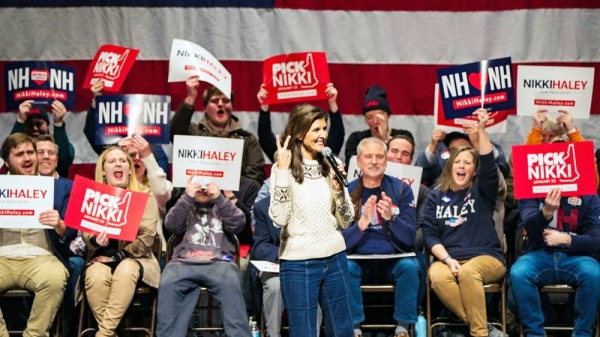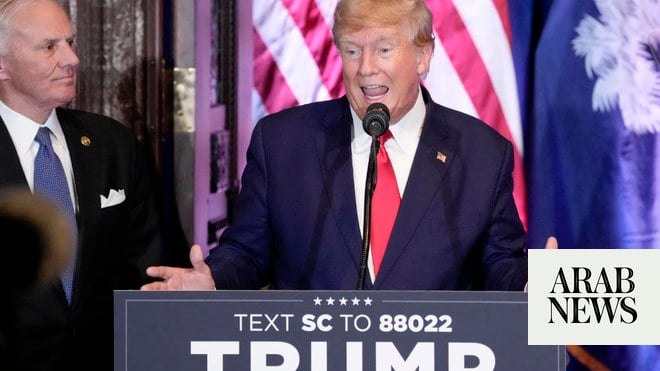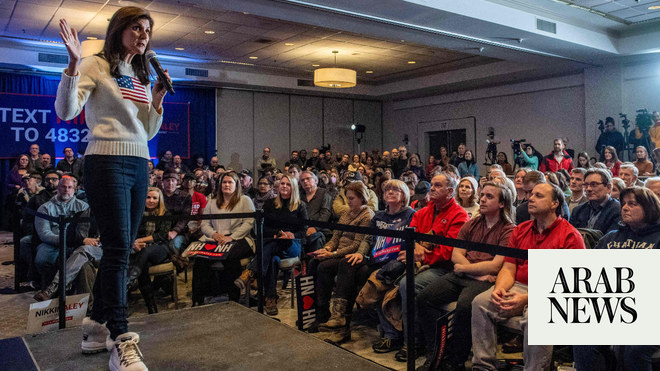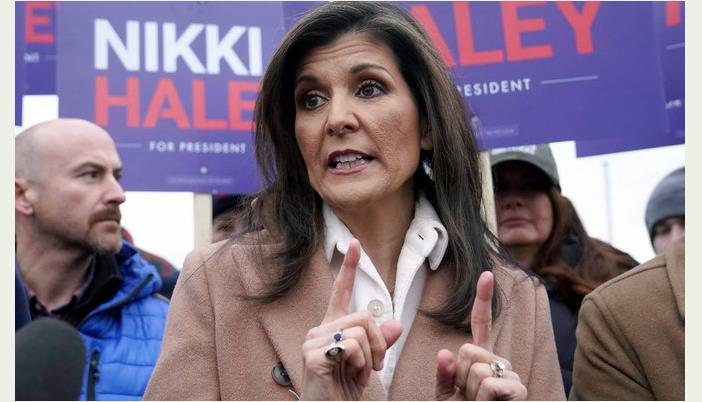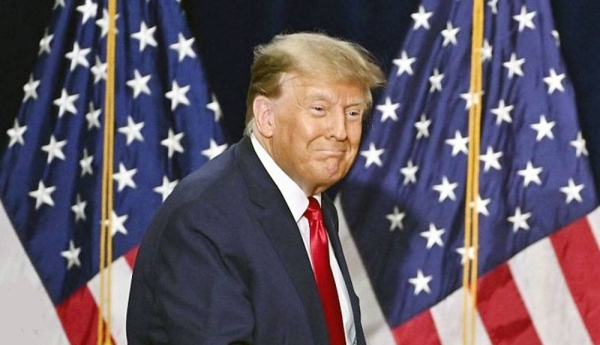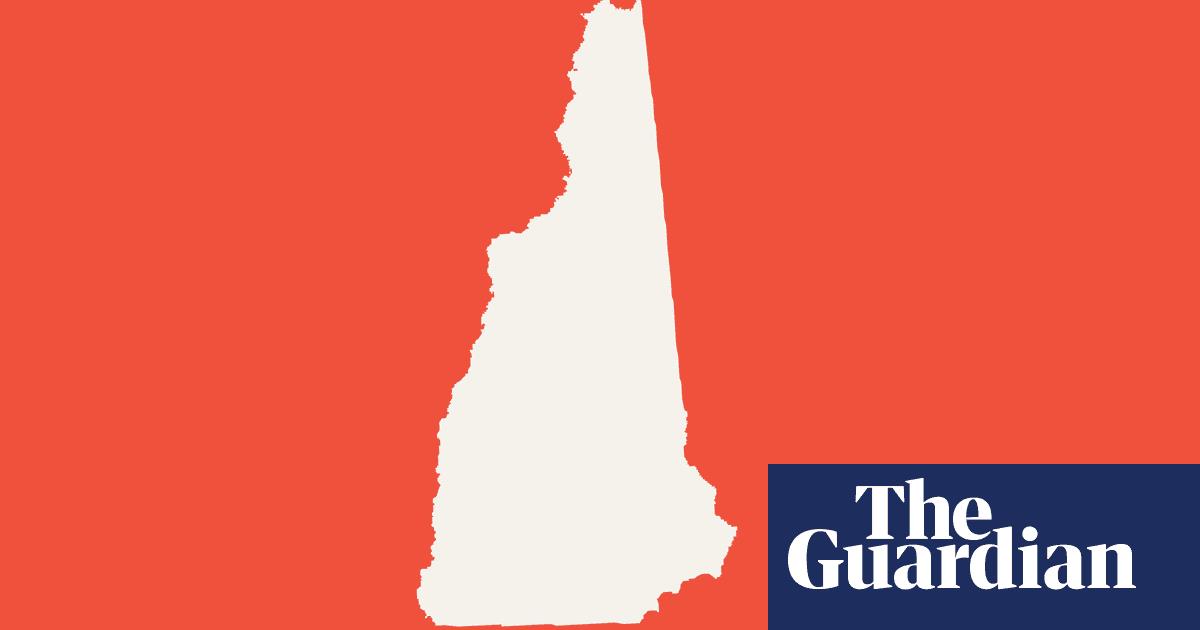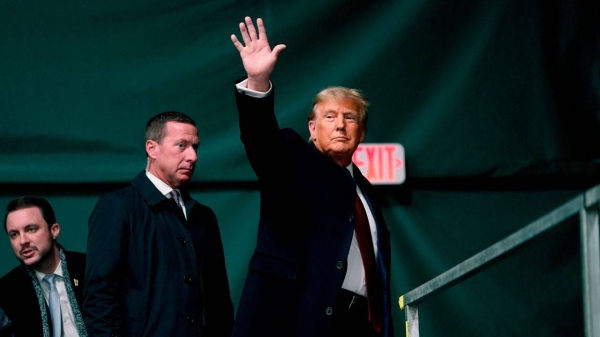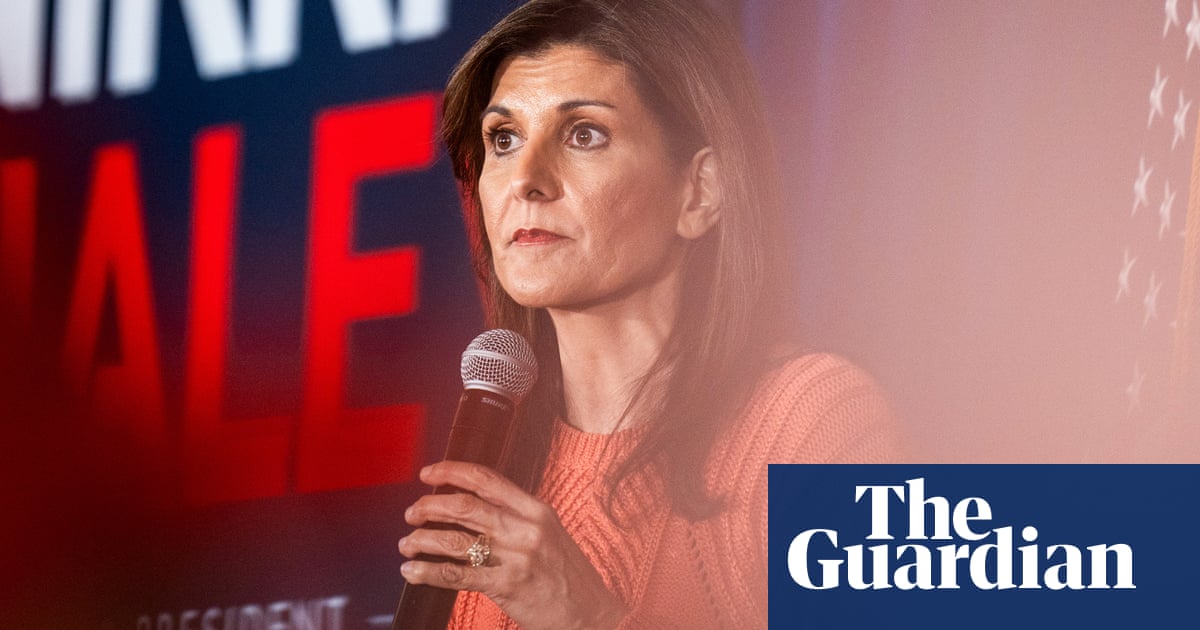
New Hampshire held its primary on Tuesday, seen by many as the last chance for Republicans to stop Donald Trump seizing their presidential nomination a third time. Would voters stand by the former president, the winner in Iowa, or would they put Nikki Haley in striking distance or even hand her a win?
Trump led polling by double digits but was considered vulnerable in a state where independents make up nearly 40% of the electorate and can vote in party primaries. Balancing that, on Sunday Ron DeSantis, the hard-right Florida governor, left the race to Haley – but endorsed Trump.
In 2016, New Hampshire propelled Trump to the nomination. Eight years later, eight days after a record Iowa victory, another big win would effectively extinguish Haley. The former South Carolina governor staked her candidacy on New Hampshire, attempting to convince voters she is best placed to beat Joe Biden in November.
“We’ve come a long way in these 11 months,” Haley’s campaign manager, Betsy Ankney, said in a “state of the race” memo.
“We started at 2% [support]. We started with zero dollars in the bank. No one thought we had a shot … And here we are, $50m raised, over 200 stops, and 12 fellas [failed male candidates] later, and Nikki’s still standing.”
Trump’s campaign released its own memo, aides Chris LaCivita and Susie Wiles predicting Haley’s efforts would only win an “aggressive – and bloody” campaign for “First Place Loser”, against the vanquished DeSantis.
In the first official results, all six voters in Dixville Notch picked Haley in a traditional midnight primary, a contest once seen as a bellwether for predicting the nominee. So, later in Concord, did Martin Janoschek, a Republican-leaning independent.
“I know she’s a long shot,” said Janoschek, 57 and unemployed. “I think she’s a pretty common-sensical person, from what I heard.”
If it came down to Trump or Biden in the November general election, Janoschek said, he would probably vote for the former president over the current one.
In Nashua, at Bicentennial elementary school, voters came and went. At the snowy entrance, a few people waved signs.
Rita Case, 78 and a retired IT worker, said she had wanted to vote for DeSantis. “I like the things DeSantis believes in, and there would not be the chaos and division that might come with Bozo, whose mouth is his worst enemy,” she said, referring ungraciously to Trump.
But she switched to Trump anyway, explaining: “He can keep people in their place and take care of the border and not let other countries walk all over us. The chaos and the ‘Uh, well’ comes in second.”
Escorted by her prize supporter, the Republican governor, Chris Sununu, Haley has traveled the state from the “suburbs to the seacoast”. Trump had been seen less widely: facing 91 criminal charges, attempts to keep him off the ballot for inciting an insurrection and assorted civil lawsuits, he held New Hampshire rallies between court appearances in Washington and New York.
For much of her near-year-long campaign, Haley, 51, avoided direct confrontation, seeking instead to draw implicit contrasts with calls for a “new generation” of leaders and proposing cognitive tests for older politicians such as Biden, who is 81, but also Trump, who is 77. In the final days, Haley went after Trump more aggressively, questioning his mental fitness.
Trump responded with insults and misrepresentations, accusing his former UN ambassador of relying on “globalists” and liberals. He also revived a “birtherism” lie which claims Haley is ineligible for president because her parents were not US citizens when she was born. Born in South Carolina to parents from India, Haley is eligible. Trump also appeared to mock Haley by referring to (and misspelling) her given name, Nimarata. Haley has always used her middle name, Nikki.
Many New Hampshire voters complained that the campaign mostly played out in TV ads and mailshots as millions were spent. Some voters said they received up to 10 pieces of literature each day. In Manchester, the night before the primary, Haley told her audience: “You’re excited because you won’t have to watch any more commercials. You won’t have to see the mail and the text messages will stop.”
The flood is about to consume another state. Haley scheduled a rally for North Charleston, South Carolina, for Wednesday. It was set to be accompanied by $4m in television, radio and digital advertising.
“We don’t believe in coronations in this country,” Haley told Fox News. “I’m in this for the long haul.”
Trump dominates South Carolina polling, however.
Democrats were also holding a New Hampshire primary on Tuesday, if without Biden on the ballot after the party tried to start its contest in South Carolina. Voters chose between Dean Phillips, a congressman from Minnesota, and Marianne Williamson, an author and self-help guru. Biden supporters urged voters to write in the president’s name.
At a high-school in Windham, Phillips chatted with Theresa Arangio. Later, she said she wavered between Biden and Phillips, before Phillips won her over.
Arangio, 81, said: “President Biden, I really think he’s done a great job. I really like him. But, you know, the age is a factor. And with Trump, I’m just afraid. I don’t want four more years of him. I just don’t for our country.”
In Concord, AhLana Ames, 23 and a law student, said she did not vote for a person but for a word: “Ceasefire”. She had taken part in a campaign to write in the term, in protest of Biden’s support for Israel’s war in Gaza.
“I’m against war in general,” Ames said. “I don’t think what’s going on in Israel is particularly just. I’m not particularly pleased with how Joe Biden is handling it, but wanted to vote Democratic.”
Saying she planned to move to Pennsylvania, a swing state Biden will probably need in the general election, Ames conceded she would probably support him.
“I just know I’ll never vote for a Republican,” she said.




